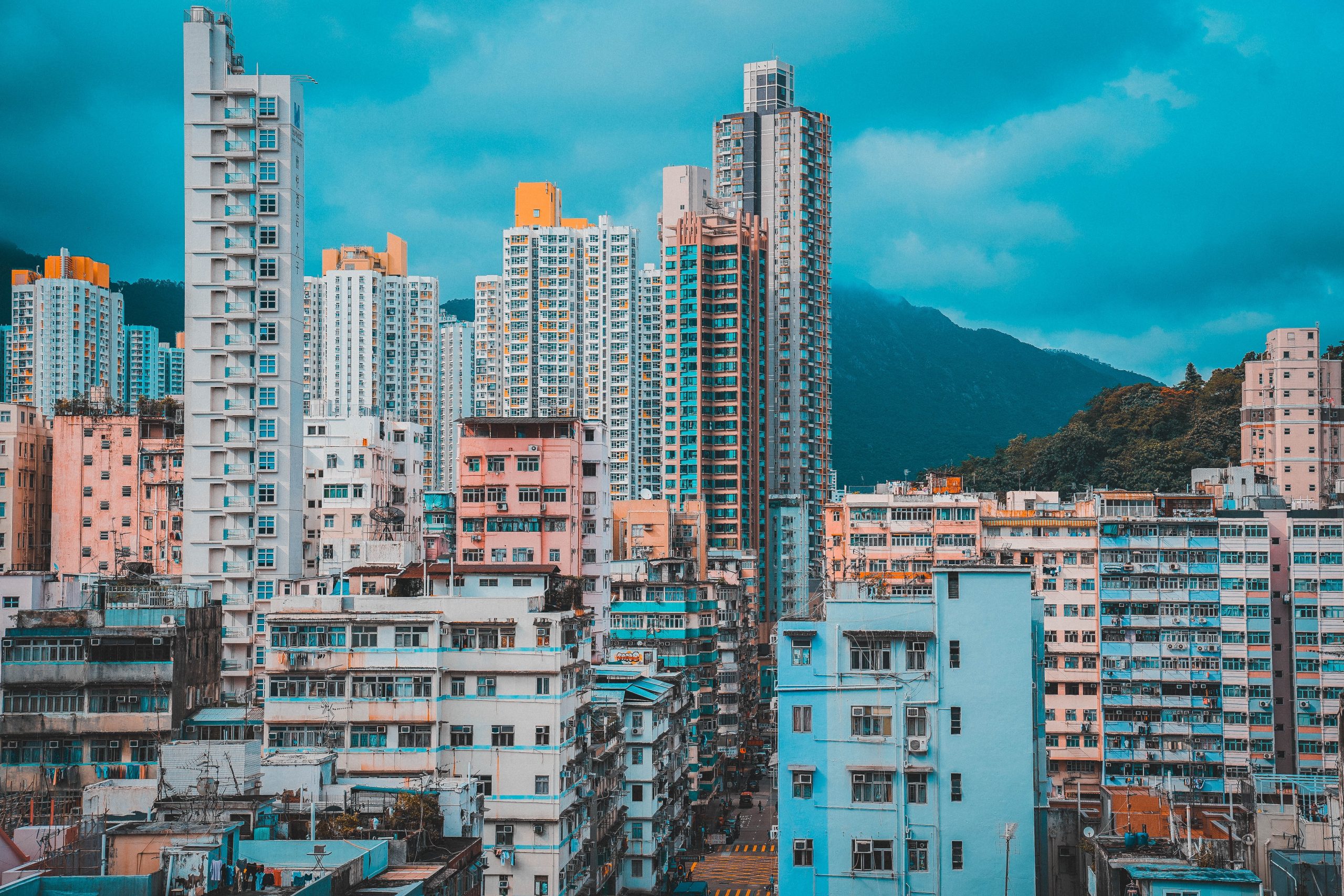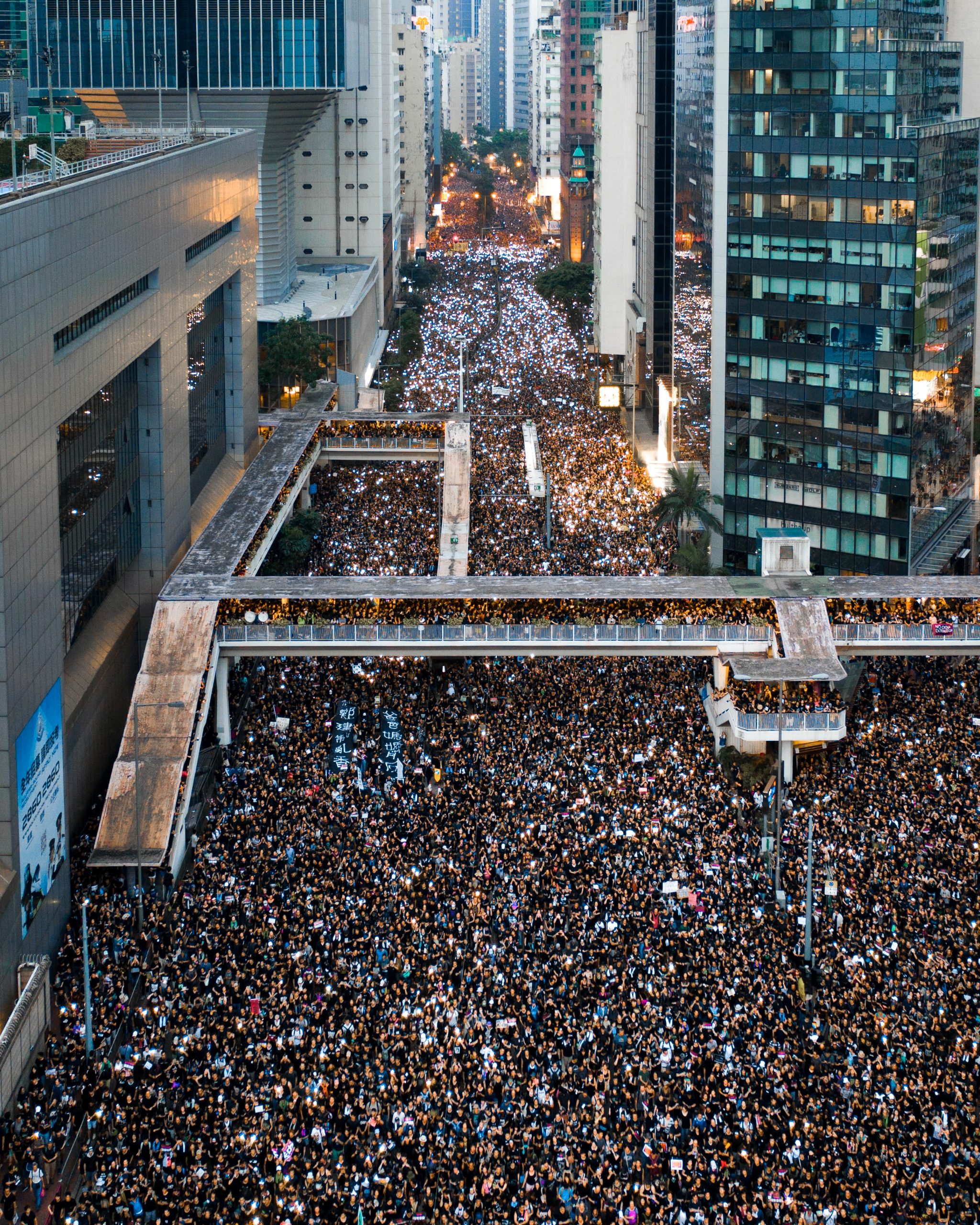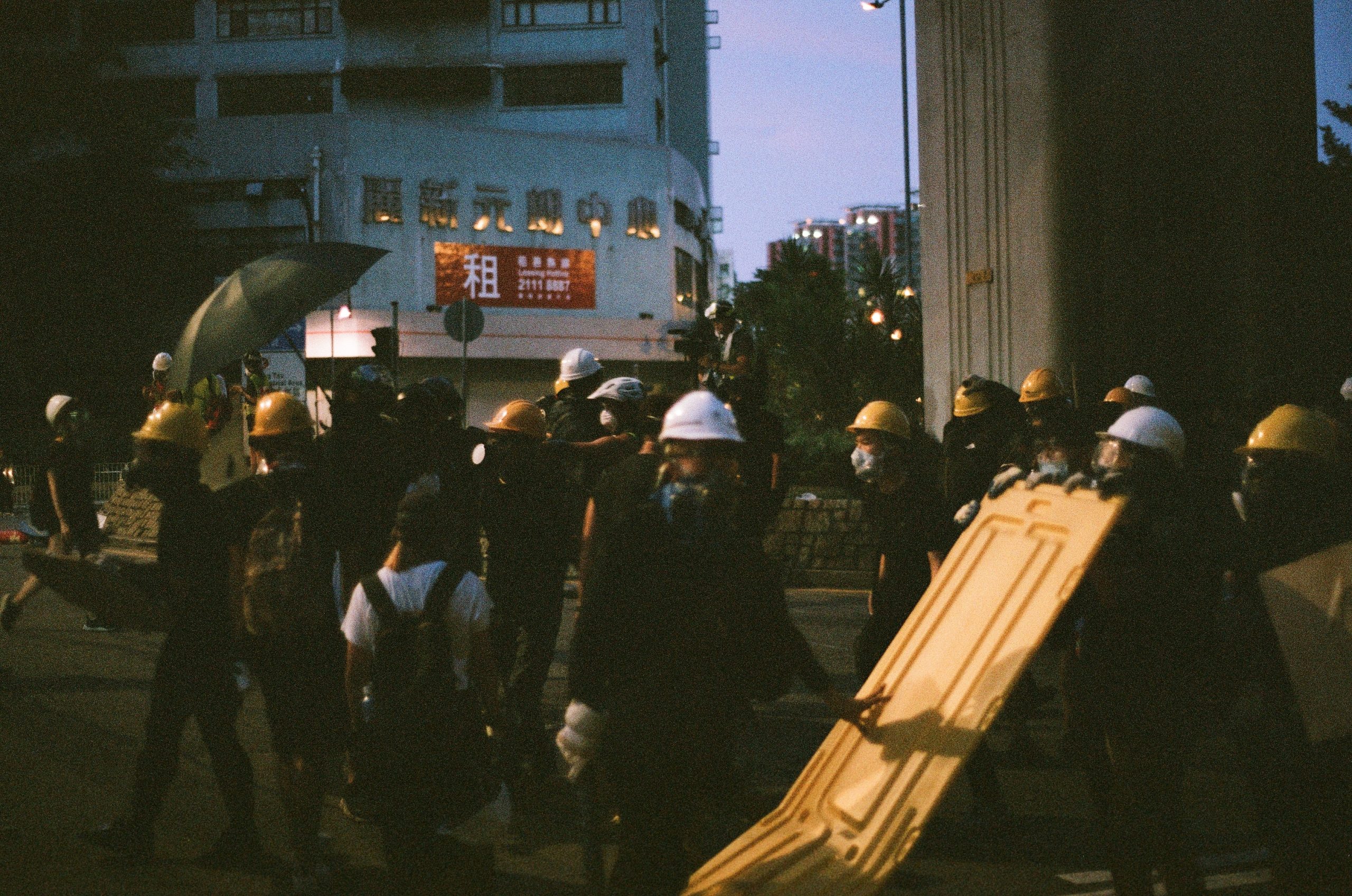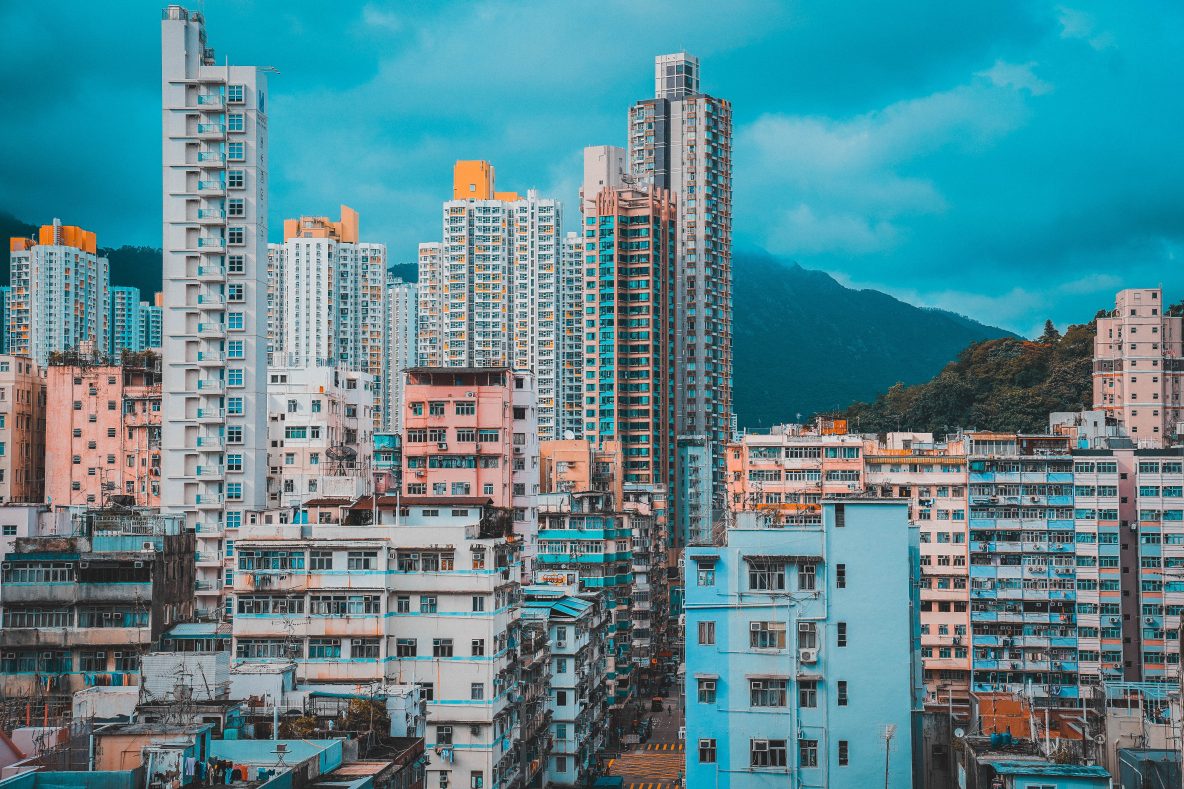what's going on in hong kong?
By Lara Bodger / 11 March 2020

Photo by Mandy Choi on Unsplash
Hong Kong has dominated the news recently, after protests in 2019 led to a severe crackdown from China. For those confused about the context, and why the current Conservative government, not known for its pro-immigration stance, has opened up a special visa scheme for Hong Kong residents, this article breaks down the basics of what’s happening in Hong Kong and why.
Hong Kong, Britain, and China
British involvement in Hong Kong began in 1842 when China ceded Hong Kong island to Britain as part of a treaty following the First Opium War, and Hong Kong became a British colony. In 1997, Hong Kong was handed back to China, and in 1998, the Sino-British Joint Declaration was signed. This outlined that Hong Kong would be governed under the Basic Law, through the concept of ‘one country, two systems’, part of China, yet retaining a market economy, freedom of speech, judicial independence and partial democratic freedom. The agreement was supposed to last until 2047, but in recent history, the freedoms outlined have been significantly eroded. This history explains Hong Kong’s unique identity, part of China, but with a difference in language (Cantonese as opposed to Mandarin), culture and political system.
On the 31st of January, the UK government opened up the British National Overseas (BNO) visa scheme, allowing for Hong Kong residents who hold a BNO passport, to apply to live and work in the UK, with the ability to apply for citizenship after five years. In response, Beijing announced that BNO passports are not considered valid identification, declaring the scheme ‘a serious violation of China’s sovereignty’, illustrating the increasingly hostile relations between the UK and China. Carrie Lam, Hong Kong’s chief executive has also announced that dual nationality will no longer be recognised, meaning that diplomatic assistance is at risk.

Photo by Manson Yim on Unsplash
The National Security Law
The BNO scheme was announced in response to the Hong Kong security law passed in June 2020. The law has drawn international condemnation due to its draconian measures, containing 66 articles criminalising secession, subversion, terrorism, and collusion, effectively eliminating freedom of speech and the right to protest. It establishes a new law enforcement agency in which to prosecute its strikingly broad remit, with those found guilty risking life imprisonment, extradition to mainland China, and a ban on standing for public office. It also applies to anyone anywhere in the world, meaning that even international resistance is at threat. The law has had disturbing consequences already, with a police crackdown on January 6th leading to 53 being arrested under charges of subversion. Pro-democracy activists are an obvious target, with high profile activists such as Joshua Wong, already imprisoned for his involvement in the 2019 protests, standing accused.
The pro-democracy movement
The idea of a democratic Hong Kong now appears impossible, with the security law being only the most recent and severe attempt to stifle the pro-democracy movement. Whilst the Basic Law outlined that the chief executive should ultimately be chosen by democratic vote, it outlined no timetable for this to be achieved, and in signing the agreement, Beijing reserved the right to interpret the law as they saw fit. China introduced the security law in response to the intensification of pro-democracy protests in 2019, opposing a law proposing extradition to mainland China (now included in the security law). In 2014, tensions were also at breaking point, sparked by Beijing’s announcement that elections in 2017 would not be fully democratic, with candidates coming from a pre-approved list. The protests have been characterised as the ‘umbrella movement’ due to protesters using umbrellas to shield themselves from tear gas thrown by police, with clashes between police and protesters often acutely violent.

Photo by Leung Yattin on Unsplash
What happens next?
The pro-democracy movement has been energised and propelled by young people, striving to preserve Hong Kong’s unique identity and escape China’s authoritarian grip. For those young activists that protested in the name of freedom, the question of what future lies ahead for them remains to be seen, in a regime bent on eliminating dissent. Activists face long term imprisonment and pro-democracy political parties such as Demosisto, founded by Wong, Agnes Chow and Nathan Law have been forced to disband. Many who oppose the changes are fleeing, with 5,000 having already applied for the BNO visa scheme, yet those born after 1997 are not eligible, as this was after the handover. Taiwan has also opened its arms to Hong Kongers who wish to leave, with the number of those applying for residence permits doubling from 2019-2020. Canada has announced a similar scheme. The US, UK, Canada and New Zealand have revoked their extradition treaties, and a range of trade restrictions against the region have been announced globally. Despite the international backlash, it seems unlikely that the law will be revoked, as, under the leadership of Xi Jinping, China continues to consolidate its power across all of its territories.
For those left in Hong Kong, resistance continues, albeit covertly, through more subdued means of protest, such as public readings of the popular pro-democracy newspaper, the Apple Daily. The owner of the paper, Jimmy Lai, alongside other senior staff, have fallen foul of the security law under charges of collusion with foreign forces, despite this, the paper promises to ‘fight on’. Whilst pockets of resistance will undoubtedly remain, it seems inevitable that the crackdown will continue until public dissent is eliminated, leaving little hope for those that fought for democracy.
Words by
Share this article

